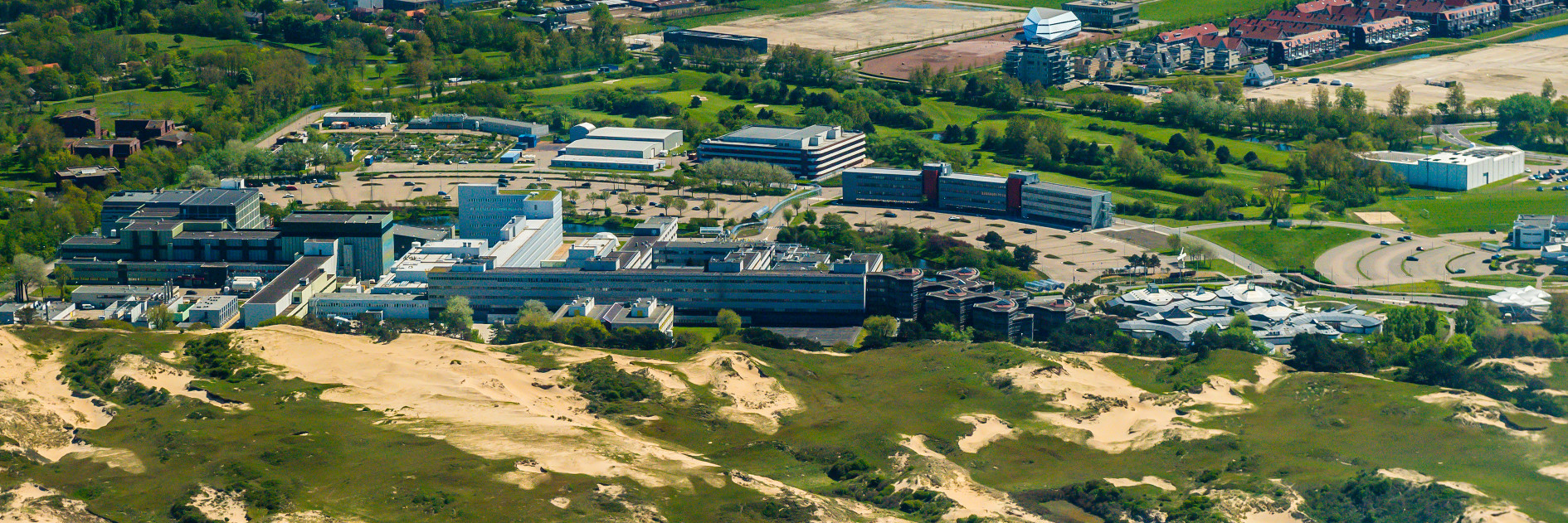ESTEC - Space Science Faculty
|
|
ESTEC (the European Space Research and Technology Centre), located in Noordwijk in The Netherlands, is the largest ESA establishment. Approximately 2000 people work at ESTEC, the vast majority of whom are engineers who develop space technologies, carry out research in many diverse areas of space science, and support the development and operation of ESA’s projects and missions. ESTEC hosts a large fraction of ESA’s Science Directorate (D/SCI), which is dedicated to implementing ESA’s Science Programme, including:
- the Project Teams, groups of engineers who manage the development of ESA’s scientific missions. They interface to the many parties - both inside and outside ESA - who provide elements of these missions.
- The Study and Project Scientists, who provide the cradle-to-grave scientific oversight of the Directorate's missions. The Study and Project Scientists work closely with the Project Teams to ensure that the maximum scientific return, within applicable constraints, is maintained as an objective throughout all mission phases. The Science Support Office is the home of the Study and Project Scientists.
In order to carry out their “functional” work effectively, the Study and Project Scientists must be experts in the science area that their particular mission will carry out, and the best way to achieve this is to be an active scientist in that field. Therefore, as part of their work, they carry out their own programmes of scientific research, very often in collaboration with the external teams of scientists who participate in their missions. In addition, they often carry out research in separate areas of their own particular interest.
As a consequence, the Science Support Office has a permanent complement of around 50 active scientists whose areas of expertise cover the range of ESA’s science missions. This range of scientific interests can be broadly categorized into Astronomy and Astrophysics, Planetary Science, Solar Science, Solar/Terrestrial interactions, and Fundamental Physics.
In addition to this permanent group of scientists, the Support Office employs every year post-doctoral Research Fellows (RFs) who remain at ESTEC for a period of 2-3 years. Typically, there are around 10 RFs located at ESTEC at any given time. RFs do not carry out functional work, but instead a research programme of their own choosing. However, if they wish to have a deeper exposure to a particular ESA mission, they may be involved in it to a limited extent.
The total ESTEC Faculty consists of around 60 space scientists, who are supported in their activities much as would happen in a typical academic scientific institute. For example, the Support Office invites external speakers for bi-weekly colloquia, and organizes internal talks on alternate weeks. The Office provides funding for travel to scientific conferences and observing trips, as well as for external researchers to visit Estec for short periods. The Office also funds workshops and research-related projects which may involve the production of hardware or data products. Finally, it is also possible to collaborate with students or younger scientists-in-training via specific programmes.
The ESTEC Faculty maintain close ties with their colleagues at ESAC, both functional and scientific. ESAC is responsible for scientific operations of ESA’s science missions, and this requires the involvement of a large number of scientists. However, the ESTEC Project Scientists remain responsible for the overall scientific productivity of the missions during their entire lifetime, and this requires many interactions between staff at ESAC and ESTEC. From a scientific point of view, many ESAC and ESTEC Faculty are associated to joint topical groups who actively collaborate in specific areas. Once every year, the entire ESTEC and ESAC Faculty meet together (alternately in The Netherlands and Spain) at a Science Workshop where latest results are presented and discussed.
- Removed a total of (1) align=center.
- Removed a total of (1) border attribute.
- Removed a total of (1) cellpadding attribute.
- Removed a total of (1) cellspacing attribute.








































 Sign in
Sign in
 Science & Technology
Science & Technology
